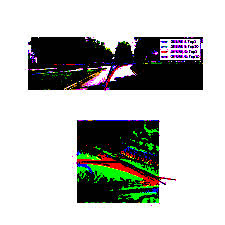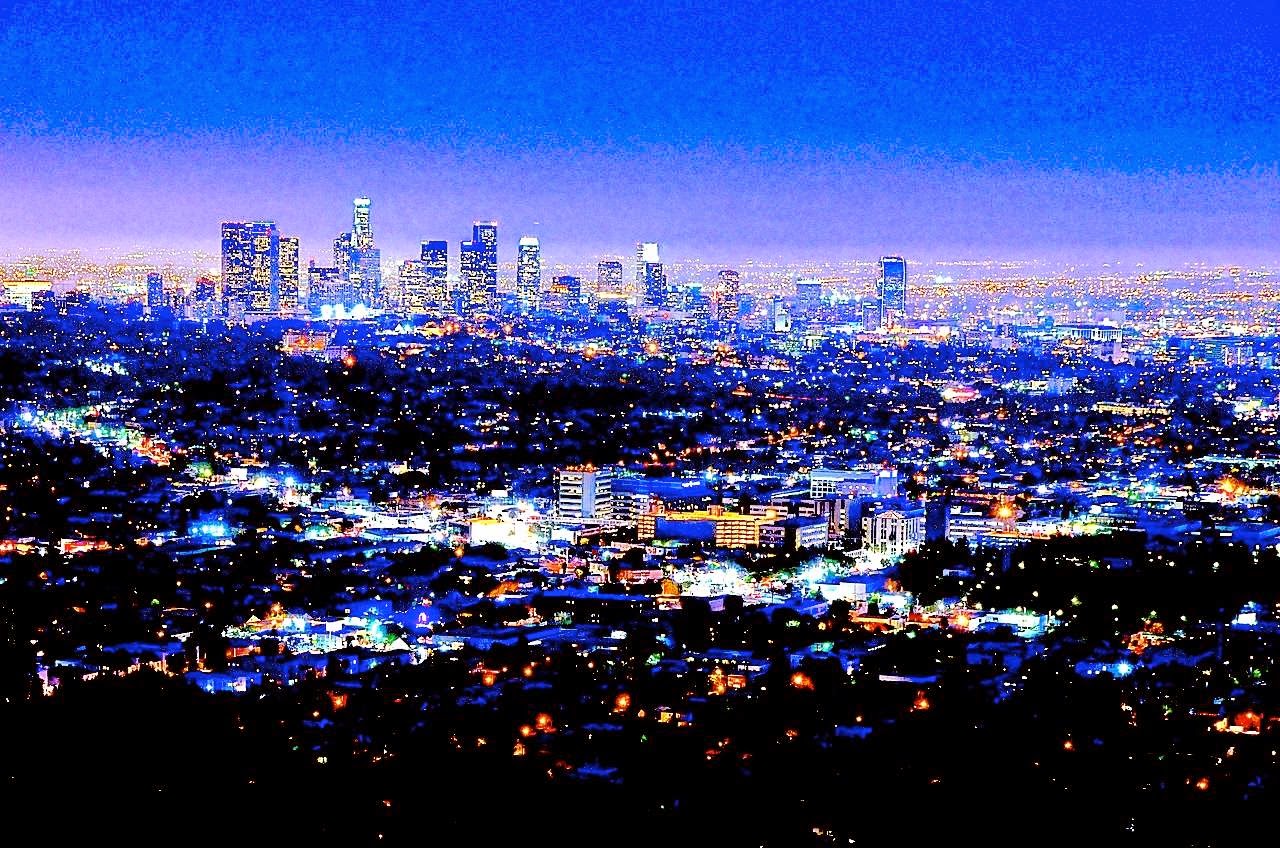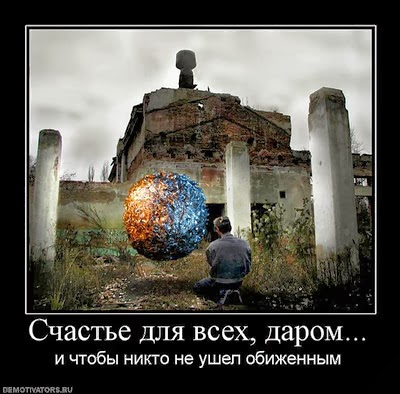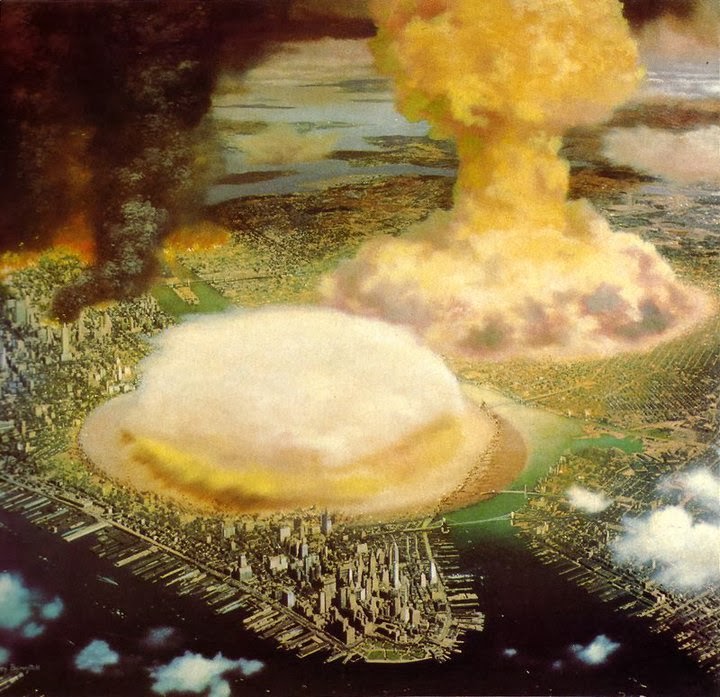
When mass protests and regime changes swept across North
Africa in the Spring of
2011, and subsequently triggered turbulence
in Bahrain and a bloody civil war
presently being waged in Syria,
Occidental journalism and political commentary was
initially taken by
surprise. The status quo – and not only for Arab dictators –
had
seemingly crumbled overnight. The situation was eventually
brought into perspective
and under Western eyes through a series of
explanatory frames – educated
unemployed youth, the new social
media, state oppression and the lack of democracy
– that responded
to Occidental criteria of analysis. Of course, in the
contemporary
conditions of planetary modernity all is somehow
connected, nothing takes place in a
vacuum, and the languages,
technologies and ideologies of the West clearly played a
significant
role. However, rather than measure such events – their
perceived
achievements and failures – against a presumed Occidental
template it is perhaps
politically and historically more significant
to register the emergence of a series of
interrogations that invest
both the protagonists and those of us observing from afar. It
is also
important at this point to register that the processes and procedures
under
discussion are still very much in progress: the question of
rights and liberties – social,
political, human – remain open,
the subject of discussion, debate and continuing
struggle. A previous
political landscape, which had been thoroughly endorsed by
Western
powers and diplomacy, is clearly in ruins. The assumption that only
the
Occidental ‘we’ has the right to define ‘freedom’ and
‘democracy’ has clearly been
rendered vulnerable to unsuspected
historical operations and cultural forces.
What emerge from this
picture are critical prospects that criss-cross the
Mediterranean,
rendering proximate its northern and southern shores, shredding
the
confines between Occident and Orient. When the terms of
political, historical and
cultural freedom are exposed – for whom,
where, when and how? – a whole critical
lexicon comes under review.
The assumed temporality of political and historical
progress, the
accumulative power of its linear development, is skewed into
another
space in which modernity is neither mono-dimensional nor
homogeneous. The
downfall of Mubarak, the daily protests in Tahrir
Square, were not simply Egyptian
matters. Their resonance was not
restricted merely to the Arab world. A political
lexicon that many
consider to be complete and fully achieved in the governing
bodies
and institutional authorities of the West has been reopened
and newly researched,
traversed and translated. Understandings of the
individual, the public sphere, political
agency, religion, secularism
and the state, suddenly become vulnerable to
renegotiation in events
that rudely punctuate flawless abstractions.
As we, too, are
learning, nothing is guaranteed. Rights and freedoms can be
rolled
back. In the name of security, driven by the imperatives of
governance, there can
always occur a turn in the screw. In a world
that increasingly does not recognise
human beings, only citizens and
subjects, the categories that supposedly secure the
polis are always
open to unsuspected interpretation, redefinition, contestation
and
ideological spin. Our conceptual securities become the agonistic
sites of historical
processes and cultural struggle that do not
necessarily mirror the critical and political
imperatives of the
West. What is presently occurring in North Africa and the
eastern
Mediterranean – in Egypt, Israel or Syria – throws an
interrogating light across the
West that in multiple ways is
responsible for the powers and possibilities in play. Not
2
only does
a colonial past, etched in the actual frontiers of these states and,
in
particular, in the foundation of the state of Israel in 1948,
continue to haunt the
dramatic conflictuality of the area, but
understandings are overwhelmingly directed
and disciplined by Western
constructions of Islam and the Arab world. In an
unfortunately
under-read book by Edward Said – Covering Islam: How the Media
and
the Experts Determine How We See the Rest of the World (1981) –
the precise
political and cultural prison house of such constructions
is caught in its brutal
historical weight. Precisely by slipping
beyond these constructions and reworking and
translating the
political and cultural lexicons of modernity the West is now
confronted
by a modernity that is not merely ‘ours’ to administer
and define. In the transit of
translation, which as Walter Benjamin
has taught us is always a two-way process in
which the original is
subsequently impossible to reconstruct, unexpected versions
emerge.
As Salman Rushdie put it some time ago, this is how newness enters
the
world.1
After all, explanations that run along the grooves of
precarious livelihoods, youth
unemployment and the frequent
unaccountability of government are an increasingly
global condition
and not simply restricted to the south of the planet. Revolts in
Tunis
and rioting in south London are not the same thing. They are
differentiated in all
manner of complexities, but they are also bound
together in the overarching
procedures of a neo-liberal global order.
Here in the resonance and dissonance of
different localities we also
touch the paradoxes of the present conjuncture: registering
in the
Arab world demands for freedom, change and accountable government,
while
in the West these perspectives are often publicly in retreat.
To register the proximity
of the dramatic visual presence of events
unfolding on the African and Asian shores
of the Mediterranean draws
the West, however reluctantly, out of its self.
Massacres,
dictatorships, police brutality, people on the street
voicing the sacred lexicon of
Western liberalism – ‘freedom’,
‘democracy’ – cannot be ignored. There was no
burning of US or
European or Israeli flags; simply the disquieting spectacle of
people
apparently taking the political rhetoric of the West
seriously; often far more seriously
than the West itself. The
languages of the West have exceeded any single point of
‘origin’;
they are clearly no longer its property, to be defined and managed
solely
according to its will.
What is exposed, perhaps unwinding in
what until yesterday were the autocratic
states of North Africa, is a
profound challenge to neo-liberalism, to its individualist
and
fundamentally anti-social and anti-democratic logic. Beyond the
slogans of
democracy and constitutional reform there is emerging in
the Arab world the
fundamental contestation of the hypocrisy of the
modern state, particularly after the
fiscal crash of 2008, which
considers only the welfare of its elites throughout the
world, rather
than that of the majority of its population. There are
significant
planetary communalities here. The public financing of
stability and not of change, the
rescue of banks and the bailing out
of corruption rather than people, is part of
planetary drive towards
privatising profits and socialising losses. Ultimately, the
ongoing
struggles for change in the Arab world, the unexpected
outcomes of a social
networking that stretches from the blogosphere
to the street, is also profoundly about
processes of democratisation
and their absence, not only in the rest of the world, but
also in the
West itself. The necessary re-reading of modernity proposed in the
present
1
Salman Rushdie, ‘In Good Faith’, in Salman Rushdie
Imaginary Homelands, Granta, London, 1992,
p.394. This theme is
brilliantly explored in Homi Bhabha’s essay ‘How newness enters
the world’, in
H.K. Bhabha, The Location of Culture, Routledge,
London and New York, 1994.
3
moment invites us to consider in
particular its composition in the complex meshing of
liberalism and
capitalism. This is a political economy – the very term and
practice
itself a product of this formation – in which Occidental
economical, political and
cultural power presents itself as a
hegemonic force on a planetary scale. It is where
state, nation,
market and ‘civilisation’ are increasingly wedged or striated
within each
other’s making, and their separation increasingly
rendered untenable. It is about a
‘way of life’. This is why we
are talking about a political economy and not simply
about
economics.
Abu Atris, the pseudonym of a writer working in Egypt,
suggested on the Al
Jazeera English web site (24/02/2011) that what
was under way in the revolts in North
Africa was also a revolt
against neo-liberalism and the policing of its logic by
subordinate
client states in the Arab world. The systematic conflation of
business and
politics under the impact of privatisation, forcibly
bringing society under the rule of
the market, is not only typical of
the situation in ‘advanced Western democracies’.
Egypt and
Tunisia have been neoliberal states for decades. The proximity of
Arab
leadership to the Bush administrations, or over a longer period
of time of the direct
involvement of the Italian government in the
Tunisian state, is mirrored in public
figures (which in Egypt
includes the upper ranks of the military) having a foot in
both
politics and business. Government is there to defend free market
fundamentalism, to
divert financing from the public to the private
sector, or rather to privatise and plunder
public resources, and to
ideologically block considerations of poverty and questions
of social
and economical justice. In this scenario, the proximity of Cairo
to
Washington, or of Tripoli to Rome, reaches its obscene extremes
when warfare comes
to be organised through neo-liberal principles and
increasingly privatised: contractors
in Iraq, mercenaries in
Libya.
For the problem, rarely acknowledged, is that there does not
exist a unique or
homogenous West, or East, there exists no such
thing as Islam or Christianity. The
world cannot be othered in such
simplicities,
and civilisation or truth be
immediately
identified with one or other of the antagonistic poles.
To insist on the idea of Islam as
a thing, condensed in the figure of
the armed terrorist or the veiled woman, that is, in
a clear image to
be confronted, contested and eventually converted to our way of
life,
reveals, as Edward Said and Gil Anidjar have explained, the
centrality of religious
discourse to the making of the modern West.
As a category of interpretation – like
‘race’ and ‘ethnicity’
— the concept of ‘religion’ is an invention of
Occidental
modernity and its planetary pedagogy.
El Jadida. It is the
hour that milk is delivered. The hour that I love the most in
my
city, peopled still only for an instance by those who have to rise
early:
street cleaners, fisherman, donut vendors, the devout,
vegetable sellers, the
custodians of the public ovens. One after
another they wish me a «luminous
day» while I wander the streets
and alleys. Come with me into the old
Portuguese town where the past
has been restored in the smallest detail. In this
space, the size of
a public square, there, flanking each other is a mosque, a
church and
a synagogue. What is this Islamism? This word does not appear in
our
dictionaries. I learnt of its existence in the Western media.2
Driss
Chraibi, ‘Extreme West’
2
Driss Chraibi, ‘Occidente estremo’
in Micaela Arcidiacona and Erminio Risso (eds), Voci
del
Mediterraneo, Edizioni Magma, Naples, 1997. My translation.
4
The
disquieting historical conclusion, that we rarely confront, is that
European
Christianity is perhaps the proper name of Occidental
modernity and its globalisation.
Secular, lay thought, is sustained
by a disposition of faith: the belief in the
teleological redemption
of time as ‘progress’; in the call to save the world and
render
it subservient to an unique image; in the humanist mastery of
the cosmos; in the
mission to create an exceptional state, or the
‘city on the hill’, sought by the Puritans
in the colonies of
north America (and the Jesuits thousand of miles further south on
the
same continent). As Antonio Gramsci reminds us, the relationship
between
religion, the state and the political formation of the West
is inseparable. Elsewhere, I
have argued that the secular West is
sustained by this ‘invisible order’.3 In strictly
historical
terms no one would contest this affirmation, particularly in the
context of
the violent affirmation of the constellation of European
colonialism. But to insist
today on this dimension frequently
promotes critical embarrassment and silence.
Today, the question of
religion is associated with other places, and other epochs,
with
another culture: somebody else’s property and problem,
certainly not belonging to our
modern world. Some years ago, the
Egyptian scholar Leila Ahmed noted that in the
struggle of Western
women for their rights and freedom no one ever suggested that
they
should abandon Christianity in order to obtain them. Today, it is
precisely this
option – the abandonment of what, after all, is a
variant of a shared monotheism –
which the West demands of Muslim
women.4 Such a request obviously presumes that
Islam and modernity
are separate entitles, rather than profoundly entangled in a
complex
European and extra-European formation. That one can be modern, a
Muslim
and a woman clearly undoes any singular definition of
modernity, its politics,
practices and possibilities.5
From this
awareness it becomes possible to grasp the sense of an
eventual
humanism that is disentangled from the hypocrisy of a
‘Europe which never stops
talking of man yet massacres him at every
one of its street corners, at every corner of
the world.’ (235) The
humanism that Fanon sought, to replace a ‘jumble of dead
words’
(p.11), has the vital responsibility to host requests and desires
that exceed the
will of the West. To cross this threshold is to sound
the intellectual and moral
bankruptcy of a Europe that achieved its
apex in the colonial instance that, in turn,
was stabilised and
perpetuated by racism as a founding structure of
Occidental
modernity. Here there would be much to say on the vicinity
of Fanon and Foucault
around the central idea of race and racism as
the central disposition of modern biopower.
Apart from secularism,
the other key concept invariably deployed in the registration
of
apparent difference between Europe and the rest of the world is that
of the ‘public
sphere’. Together with secularism, the public
sphere is considered central to the
formation and exercise of modern
democracy. Here in the public exposition of
individualism and
rationalised interests the modern bourgeois order was
apparently
formed.6 It tends to be assumed that the rest of the world
lives the concept of the
3 Iain Chambers, ‘The “Unseen Order”.
Religion, Secularism and Hegemony’, in Neelam Srivastava
and Baidik
Bhattacharya (eds) The Postcolonial Gramsci, Routledge, London,
2012.
4
Leila Ahmed, Women and Gender in Islam: Historical Roots of a
Modern Debate, Yale University
Press, New Haven, 1993.
5
Saba
Mahmood, Politics of Piety: The Islamic Revival and the Feminist
Subject, Princeton University
Press, Princeton, 2005.
6 Jürgen
Habermas, The Structural Transformation of the Public Sphere: Inquiry
into a Category of
Bourgeois Society, Polity Press, Oxford,
1992.
5
public sphere as an absence, rather than being the site of
other modalities of public
encounter, confrontation and expression.7
The opacity proposed by embedded
practices and lives elsewhere
confound Occidental rationality seeking to render the
world
transparent to the universalising desire of its will. If modern
anthropology has
begun to understand this, much of the rest of the
social and human sciences still
remain very much in the dark. The
so-called ‘Arab Spring’, unauthorised by Western
politics,
culture and its sciences, has operated a cut of this type. What
emerges is that
the Occidental blueprint cannot be simply copied or
imposed. Its languages and
technologies may well open up local
counter-spaces and narratives – from rap music,
heavy metal Islam
and social networks to pressuring political institutions to change
–
but they are always in transit, without guarantees; their
apparent roots in the West
provide somebody else's routes. The West
in becoming the world loses its ‘origins’.
The question of
secularism and the public sphere should therefore not be
understood
simply in terms of their sociological specificity: the historical
products of
local forces, political desires and cultural constraints.
As cultural practices and
historical forces they contribute to an
altogether more extensive debate, and the
eventual elaboration of a
convivial critical space that is neither limited to Islam, the
Arab
world, nor to the West. The translation by the West of its other, and
that of the
West by the other, however asymmetrical the relationship,
is by no means a one-way
traffic. This is why the planetary transit
of the West – its political languages,
technologies and modalities
of knowledge – poses a far more significant perspective
than that
of mimicry, mistranslation and presumed ‘betrayals’. In this
sense the daily
practices of realising political processes able to
negotiate and configure the historical
and cultural conditions of
life in North Africa and the eastern Mediterranean pose a
series of
interrogations that arrive at the heart of the global pretensions of
democratic
thought. The assumption that democracy is forever
Occidental in provenance, practice
and participation necessarily
comes undone. If the West has become the world it can
no longer claim
a unique centre or single authority.
As the infinite passage of music
teaches us, the discourse and structures of
democracy, faith and the
public sphere can be duplicated, dubbed and remixed in
multiple and
unauthorised versions. The encounter with other historical
traditions,
cultural patrimonies and modalities of reasoning
instigates mutual translation
(however uneven the forces in play). It
inaugurates processes that can no longer be
understood in a
unilateral fashion. ‘Freedom’ and ‘democracy’ are not
exportable
items, ‘religion’ is not merely a timeless dogma: all
are historical practices that
emerge from complex human fashioning.
Learning from a multifarious world that has
not simply been proximate
in its thought and culture to the West, but also deeply
imbricated in
its formation and language (from science and medicine to
language,
literature and the culinary arts), is not merely a matter
of adjusting a repressed
historical archive. Listening and responding
to the southern and eastern shores of the
present-day Mediterranean
is, despite its obvious economic and political
subordination to
Euro-American interests, to take an apprenticeship in the justice of
a
democracy yet to come: both there and here.
This, finally, is the
‘disjunctive time’ (Homi Bhabha) of the postcolonial present.
It
is a time that is neither linear nor monolithic, and exposes
modernity to other
dynamics in the planetary present.8 It is right
now being explored in events, cultural
7 Armando Salvatore,
‘Eccentric Modernity? An Islamic Perspective on the Civilizing
Process and the
Public Sphere.’ European Journal of Social Theory,
14, 1, 2011.
8
Sandro Mezzadra and Federico Rahola, ‘The
Postcolonial Condition: A few Notes on the Quality of
Historical Time
in the Global Present’, Postcolonial Text, vol.2, n.1,
2006.
6
practices and political struggles from Tunis to Teheran. This
is a time that is divided
from a unique temporality and is always out
of joint with respect to a singular will. As
a temporality that is
folded into the uneven specificities of place, and their
particular
powers of transformation, it promotes the emerging
critique of the assumed
‘neutrality’ of the Occidental view: its
political framing, its historical verdicts and the
knowledge
apparatuses of its social sciences.
Political, sociological and
historical
knowledge – their ‘objectivity’ – is now rendered
accountable in another, unsuspected
critical space: all to be
renegotiated in a displaced positionality.
In underscoring how we are
diversely placed, and yet ultimately connected, these
comments have
simply sought to propose a modality of criticism that is
ultimately
willing to expose itself to a Mediterranean whose
histories, cultures and possibilities
are irreducible to the presumed
authority of its northern shore. Is this what we might
mean by a
postcolonial Mediterranean? Perhaps, it is certainly a proposal for a
new,
more open, multilateral critical space.
much, much earlier:
the metropolitan
experience



































